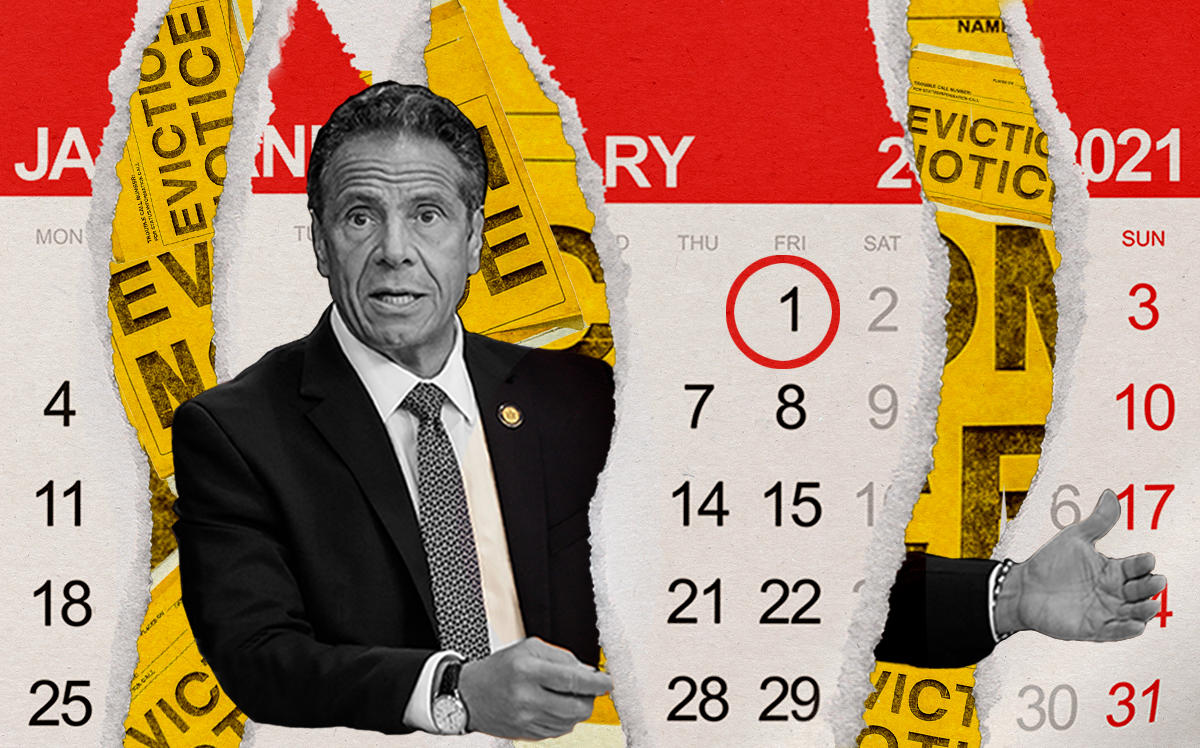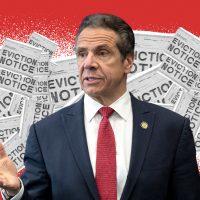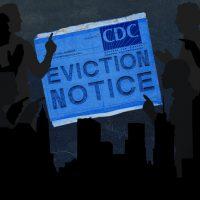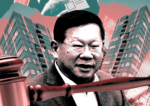 Flip-flop on eviction ban extension highlights state’s chaotic response
Flip-flop on eviction ban extension highlights state’s chaotic response
Trending
New York’s residential eviction protections extended through December
Gov. Andrew Cuomo’s announcement follows similar guidance from state agency

Gov. Andrew Cuomo on Monday extended the state’s protections on certain residential evictions through next year.
The governor announced that he signed an executive order extending protections under the Tenant Safe Harbor Act until Jan. 1, 2021. The legislation, signed into law in June, bars the eviction of tenants financially impacted by Covid-19 for non-payment of rent, but allows landlords to obtain money judgments.
The law prohibited courts from issuing eviction warrants for unpaid rent that was due from the beginning of the crisis until the state lifts emergency restrictions on businesses and other public places. But the latest order, which is not yet publicly available, offers those protections to tenants who faced eviction warrants that “existed prior to the start of the pandemic,” the governor said in a release.
Read more
 Flip-flop on eviction ban extension highlights state’s chaotic response
Flip-flop on eviction ban extension highlights state’s chaotic response
 End of eviction ban to unleash 14,000 warrants in NY
End of eviction ban to unleash 14,000 warrants in NY
 New York landlords and tenants blast CDC eviction ban
New York landlords and tenants blast CDC eviction ban
In August, court officials extended a ban on residential eviction warrants until Oct. 1. The order at the time allowed cases filed prior to March 17 to move forward, meaning that those tenants would potentially be the first wave evicted from their homes come October. The governor’s order appears to shield those tenants — if they can demonstrate pandemic-related financial hardship — through the end of the year.
“As New York continues to fight the pandemic, we want to make sure New Yorkers who are still struggling financially will not be forced from their homes as a result of Covid,” Cuomo said in a statement. “We are extending the protections of the Safe Harbor Act through Jan. 1 because we want tenants to have fundamental stability in their lives as we recover from this crisis.”
A spokesperson for the Office of Court Administration said court officials are assessing the implications of the governor’s order.
“The devil is in the details, and we have yet to see an executive order with any specifics,” Judith Goldiner, Attorney-in-Charge of the Civil Law Reform Unit at the Legal Aid Society, said in a statement. “A true moratorium will protect all tenants regardless of circumstance and not include any exemptions that landlords could exploit to drag our clients to court on frivolous grounds.”
The governor’s announcement follows similar guidance that was issued — and then retracted — by the state’s Office of Disability and Temporary Assistance last week. The agency stated that due to the federal eviction moratorium, the state’s ban would be extended through Dec. 31, 2020. Three days after publishing its order, the OTDA said the guidance was posted in error.
Meanwhile, the federal ban applies to renters who expect to make no more than $99,000 this year ($198,000 for joint filers), received a federal stimulus check this year or weren’t required to report any income to the IRS in 2019. To avoid eviction, tenants must demonstrate to their landlords that they are unable to make a rent payment because of loss of income or medical expenses and that eviction would likely render them homeless or force them to live in close quarters with others.
Tenant advocates criticized the governor’s announcement for failing to protect all residential tenants, noting that some eviction cases will be able to commence Oct. 1. In a joint statement, Housing Justice for All and the Right to Counsel NYC Coalition said that the city’s most vulnerable tenants have no way to prove financial hardship to their landlords.
“He is leaving millions of New Yorkers vulnerable to eviction in the middle of the COVID-19 pandemic,” the groups said. “Cuomo’s action today is arguably weaker than the federal eviction moratorium announced earlier this month.”
Landlord attorney Sherwin Belkin said that while the “motivation for extending the moratorium is understandable, the extension kicks the can down the road as to the obligation to pay rent and continues to leave property owners in an untenable position as they are asked to provide services, pay their vendors and address their mortgages while rents are not paid.”




